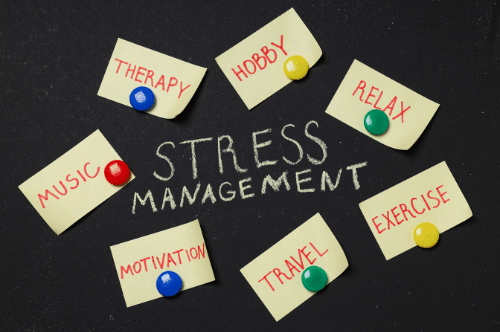
I. Introduction
Stress is a common challenge that affects nearly everyone at some point, but without proper management, it can take a serious toll on mental and physical health. For residents of Henderson, finding effective stress management techniques can be particularly valuable in improving quality of life and long-term well-being. At the Wellness Institute of Southern Nevada, I work with clients to explore practical, research-based approaches to managing stress. My goal is to empower individuals to reduce their stress levels and regain control over their lives.
In this article, I’ll cover the importance of stress management and outline practical techniques that can make a significant difference. With tools like mindfulness, breathing exercises, and cognitive techniques, it’s possible to handle daily stressors more effectively. Let’s begin by looking at what stress is and how it affects both body and mind.
II. Understanding Stress and Its Effects on the Body
Stress is the body’s natural reaction to challenging or threatening situations, often triggering the “fight-or-flight” response. This reaction is deeply rooted in human survival instincts, and while it can be beneficial in short bursts, prolonged or chronic stress can lead to significant health issues. I often see how continuous exposure to stress can impact both mental and physical health.
When someone experiences stress, their body releases hormones like cortisol and adrenaline, which prepare them to respond to immediate dangers. However, in modern life, this response can be triggered by daily stressors like work demands, family responsibilities, or financial concerns. Over time, consistently elevated cortisol levels can lead to fatigue, immune system suppression, and mental exhaustion.
Some common signs of chronic stress include irritability, muscle tension, sleep disturbances, and digestive issues. For many people, these symptoms might seem manageable at first, but without effective stress management, they can build up and become overwhelming. That’s why I work with clients to identify stress triggers and explore ways to interrupt this cycle before it affects their overall health. By learning to recognize the signs of stress, it becomes easier to apply specific techniques for stress management, improving both mental resilience and physical health.
III. Why Stress Management Matters
Learning to manage stress is essential not only for emotional balance but also for physical health. Chronic stress can lead to a range of health complications, including high blood pressure, heart disease, weakened immunity, and mental health conditions like anxiety and depression. By implementing effective stress management strategies, individuals can lower their risk of these issues and improve their overall quality of life.
At my practice, I emphasize the importance of stress management as a preventative approach to health. When clients adopt practical, day-to-day strategies to reduce stress, they’re often better able to handle life’s challenges without feeling overwhelmed. I’ve seen how consistent use of stress management techniques can improve mental clarity, emotional stability, and even physical well-being. Reducing stress isn’t about eliminating challenges but about building resilience to face them. When we manage stress effectively, we also enhance our overall mental and physical health.
IV. Mindfulness and Meditation Techniques
Mindfulness and meditation are foundational practices in stress management, helping individuals become more aware of their thoughts, emotions, and physical sensations. By focusing on the present moment, mindfulness allows people to break free from negative thought patterns that contribute to stress. Meditation, on the other hand, offers a structured time to quiet the mind, making it easier to return to a state of calmness when stress arises.
One way I introduce mindfulness to clients is through guided exercises that encourage awareness of their breath, body, and surroundings. Simple practices like mindful breathing or body scans can be incredibly effective at reducing stress, especially when practiced daily. Meditation techniques, such as focusing on the breath or repeating a calming mantra, help cultivate a sense of inner peace over time. These techniques can be customized to fit individual preferences, whether it’s starting with a few minutes each day or using guided audio sessions.
I work with clients to establish a mindfulness or meditation practice that aligns with their lifestyle. This practice becomes a powerful tool for coping with stress, promoting both mental clarity and emotional resilience. By developing a regular routine of mindfulness and meditation, clients often feel more equipped to manage stress in healthier, more balanced ways.
V. Breathing Techniques for Instant Stress Relief
Breathing exercises are simple yet highly effective tools for managing stress instantly. Deep, controlled breathing activates the body’s relaxation response, helping to reduce heart rate and lower blood pressure. Breathing techniques are especially useful in stressful moments, providing a way to quickly center oneself and regain control.
One of the techniques I often teach clients is diaphragmatic breathing, also known as belly breathing. This involves inhaling deeply through the nose, allowing the diaphragm to expand fully, and then exhaling slowly through the mouth. Another effective technique is the 4-7-8 breathing method, where clients inhale for four seconds, hold the breath for seven seconds, and exhale slowly for eight seconds. This pattern can help calm the mind, reduce anxiety, and enhance focus.
For those new to these exercises, I recommend practicing for just a few minutes each day. Regular use of these breathing techniques can make them easier to access during stressful situations, providing immediate relief. I’ve found that clients who incorporate breathing exercises into their daily routines often experience lower stress levels and greater emotional control over time.
VI. Physical Activities and Movement for Stress Reduction
Physical activity is a powerful way to relieve stress, as it encourages the release of endorphins—natural chemicals that improve mood and reduce pain. Exercise doesn’t have to be intense to be effective; even moderate movement like walking, stretching, or yoga can significantly reduce stress levels.
For clients interested in combining physical activity with mindfulness, I often suggest yoga or tai chi. These practices blend gentle movements with focused breathing, helping to improve both physical and mental resilience. Regular movement not only improves physical health but also serves as a mental reset, breaking the cycle of stress by redirecting focus and energy.
I help clients find physical activities that align with their interests and lifestyles. For some, it might be a morning walk or an evening yoga routine. The key is to choose something enjoyable, as consistent activity can be one of the most effective ways to combat stress. Incorporating movement into daily life not only relieves stress in the moment but also promotes long-term physical and mental well-being.
VII. Cognitive and Behavioral Techniques
Managing stress is not only about calming the body; it also involves reshaping how we think and behave in response to stressors. Cognitive restructuring is a technique that helps individuals identify and challenge negative thought patterns, replacing them with more balanced, realistic perspectives. For instance, instead of seeing a challenge as overwhelming, cognitive restructuring encourages viewing it as an opportunity for growth or learning.
I often work with clients to develop behavioral strategies as well. This may include setting healthy boundaries, practicing time management, and learning assertive communication to reduce daily stress. By implementing these behavioral changes, individuals can actively reshape their environment and interactions in ways that minimize stress. These cognitive and behavioral techniques empower clients to take control of their responses and approach stressors with greater confidence and resilience.
VIII. The Role of Nutrition and Sleep in Stress Management
While it’s easy to overlook, diet and sleep play critical roles in stress management. Nutrition affects energy levels and mood, with certain foods either enhancing or exacerbating stress. A balanced diet that includes nutrient-rich foods—such as leafy greens, lean proteins, and whole grains—can help stabilize mood and support overall mental health.
Quality sleep is equally important. Chronic stress often leads to sleep disturbances, which in turn, increase stress levels, creating a challenging cycle. I work with clients to establish good sleep hygiene practices, such as setting a consistent bedtime, reducing screen time before bed, and creating a calming bedtime routine. Together, proper nutrition and quality sleep build a foundation for better stress resilience and well-being.
IX. How I Help Clients Manage Stress at the Wellness Institute of Southern Nevada
Every client’s experience with stress is unique, and so is the approach I take at the Wellness Institute of Southern Nevada. I believe in crafting individualized stress management plans that integrate a range of techniques—mindfulness, breathing exercises, cognitive strategies, and lifestyle changes—all tailored to each client’s needs and goals.
My goal is to provide clients with a toolkit of practical strategies they can use every day, whether it’s deep breathing in a moment of tension or incorporating physical activity to lift their mood. I encourage clients to take an active role in their own stress management, equipping them with skills to navigate life’s challenges more smoothly and maintain mental and physical health.
X. Conclusion
Stress is an inevitable part of life, but effective stress management can transform how we experience and respond to it. With a range of strategies—from mindfulness and breathing exercises to nutrition and cognitive techniques—stress can be managed in a way that supports overall well-being. Taking small, consistent steps toward stress reduction not only improves immediate mental clarity and mood but also contributes to long-term resilience.
If you’re ready to take control of your stress and build a healthier, more balanced life, I invite you to reach out. Together, we can explore strategies that empower you to manage stress and find peace and balance in your daily life.
